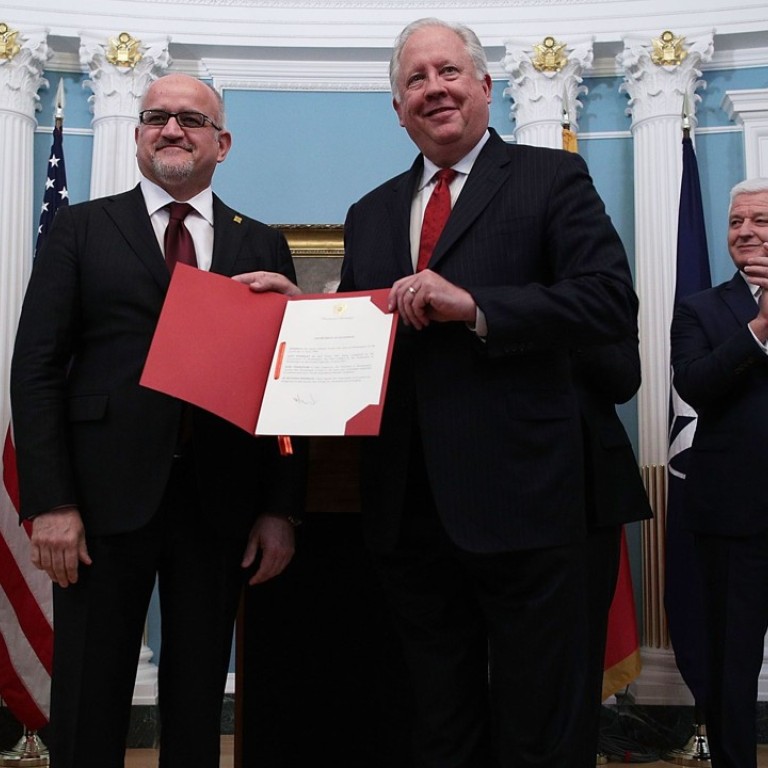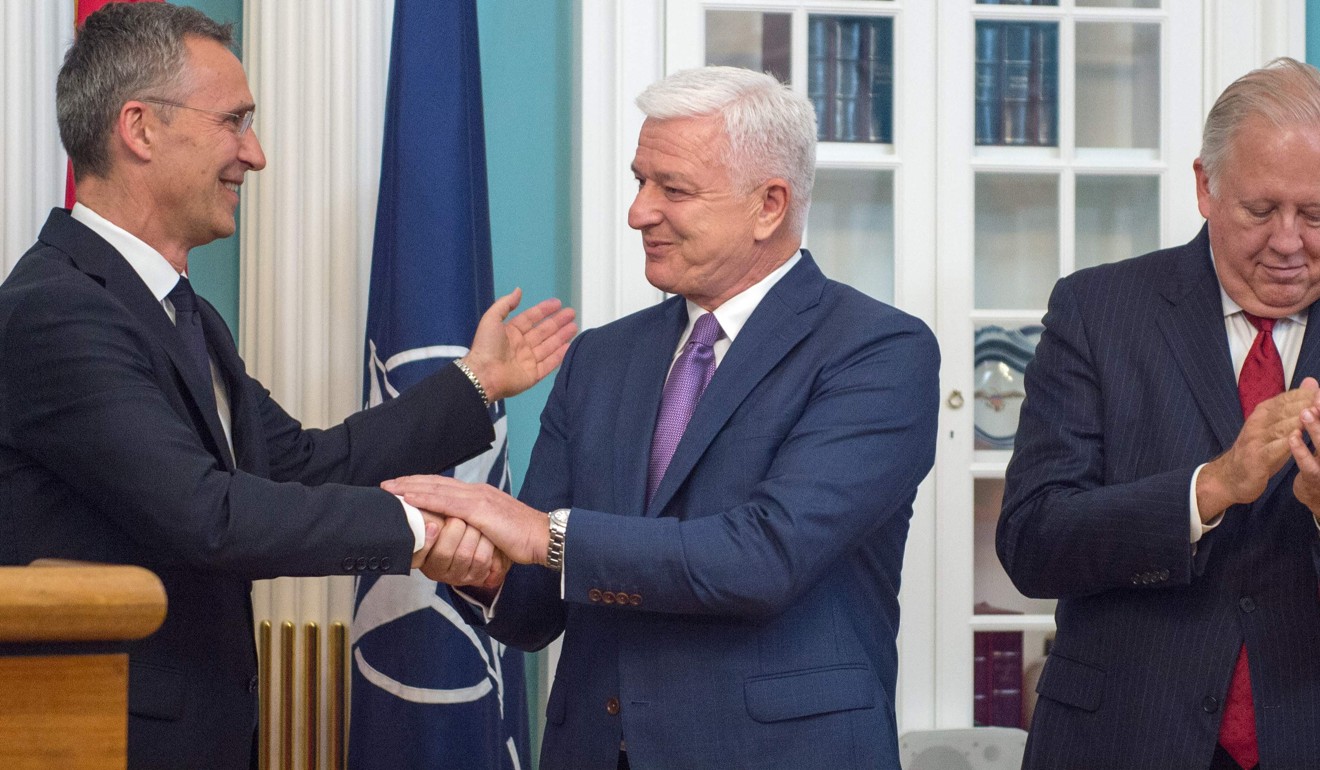
Montenegro makes it official by becoming the 29th member of Nato
Montenegro became Nato’s 29th member Monday just as the crucial Atlantic alliance appeared imperilled by US President Donald Trump’s ambiguous commitment to its mutual defence pledge.
Foreign Minister Srdjan Darmanovic submitted the small Balkan state’s official accession to the North Atlantic Treaty Organisation in a ceremony at the US State Department, just 11 years after it became an independent nation.
The move came in the face of bitter opposition from Moscow, which says Nato’s steady expansion into the former communist states of eastern Europe threatens its own security and cannot go unchallenged.
Speaking at the ceremony, Prime Minister Dusko Markovic alluded to the country’s history under Moscow’s political influence when it was part of Yugoslavia, saying Nato accession signified the right to set its own future, under its own name.
“We are celebrating today the fact that it will never happen again that someone else decides instead of us and our state behind our back, as was the case in the past,” Markovic said.
Speaking at the ceremony, Nato Secretary-General Jens Stoltenberg said Montenegro’s accession is “good for the stability of the western Balkans. And it’s good for international peace and security.”

But Montenegro’s joining also took place under the cloud of Trump’s refusal to restate Washington’s commitment to Nato’s Article 5 collective defence guarantee at last month’s summit in Brussels, despite expectations that he would do so.
Instead Trump lambasted European partners for not contributing enough to the alliance, leading German Chancellor Angela Merkel to suggest that Washington is no longer a completely reliable partner.
Formerly part of Yugoslavia, Montenegro, with a population of 620,000, became an independent republic in 2006 when it voted in a referendum to split with Serbia.
Montenegro’s accession completes Nato’s presence along the entire northern Mediterranean coast, from Gibraltar to Syria.
The move has been seen by Russia as a threat to its own traditional sphere of influence. Moscow considers Montenegro, whose population is mostly Slavic Orthodox, to be within that historic sphere.
“Moscow cannot but consider the strategic consequences of this step and thus we reserve the right to take decisions aimed at protecting our interests and national security,” Russia’s foreign ministry said after Montenegro’s parliament approved Nato accession in April.
But at 68 years old, the alliance has slipped into a new crisis because of the ambiguous commitment of the new Trump administration in Washington.
While Trump’s top security aides, like Defence Secretary Jim Mattis, have insisted that Washington remains bound by Article 5, others say Trump’s equivocal stance has raised strong doubts.
In a report on Monday, Politico said that Trump’s national security team had included a commitment to Article 5 in his remarks prepared for the Nato summit on May 25.
But Trump shocked them by personally striking out the reference without telling them just hours before delivering the speech, Politico said.
While other officials put on a good face after the summit, insisting they understood that Washington remains a strong partner, Trump added to the sour feelings with a Twitter blast at Berlin.
Merkel retorted indirectly by telling Germans that the times when Europe could rely on Washington as well as London “are coming to an end.”
“Transatlantic ties are of paramount importance to us... but the current situation gives more reasons for... us to take our destiny in our own hands,” she said last week.
“Europe must become a player active in international affairs.”

.png?itok=arIb17P0)